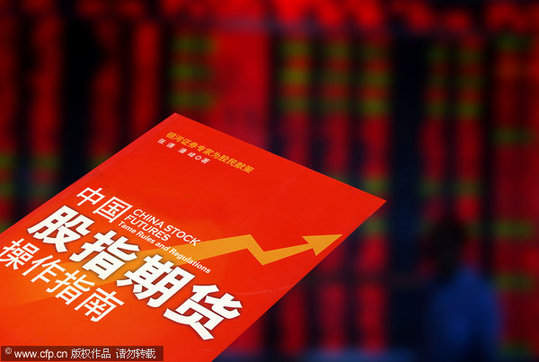Swiss UBS eyes index futures pie

In 2009, the State Administration of Foreign Exchange granted $3.3 billion in quotas under the QFII program, which is the only channel for overseas investors to invest in yuan-denominated shares.
"The timing is right for opening up trade in stock index futures, especially given the relatively reasonable valuations of A-shares," Yuen said, adding that index futures may help ease market fluctuations.
The benchmark index jumped almost 80 percent in 2009 after slumping 65 percent a year earlier. To date, Chinese investors - 85 percent of which are individual investors - may only profit from gains in equities.
But Yuen said it remains to be seen whether QFIIs will be allowed to participate in margin trading and short selling.
Ni Junji, a partner at Grandall Legal Group, said it will be difficult for QFIIs to do margin trading given the quota limits imposed on them.
She added that large-caps with sound fundamentals and rosy earnings reports are likely to have more market growth potential after the new financial derivatives come out.
The China Financial Futures Exchange (CFFE), the mechanism on which stock-index futures will be traded, published rules effective in June 2007, saying that investors would be required to put up 10 percent of a contract's value to buy, sell or short sell futures based on the CSI 300, which is a capitalization-weighted stock market index.
 0
0 






